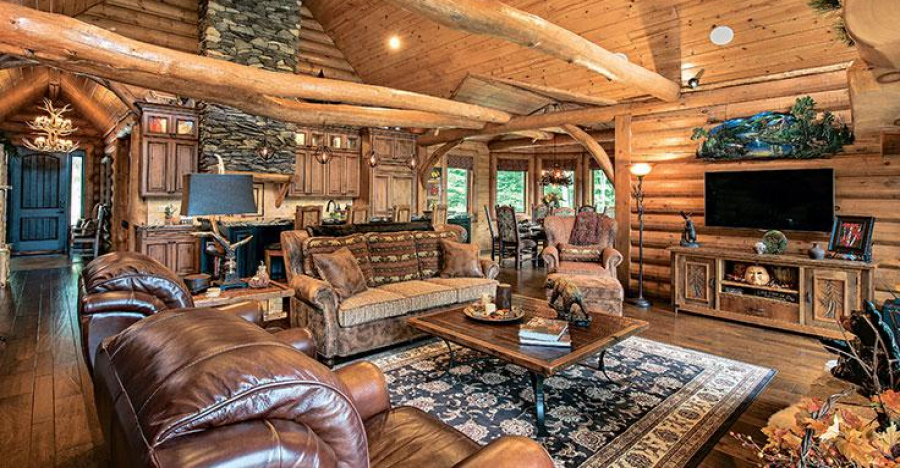Use Lighting for An Inspiring Log Home Interior

When it comes to your log house the lighting that you choose to use can make a big difference in the overall look, feel and mood you are hoping to set.
When your home is built from logs, the logs naturally absorb light, so you’ll want to use the right fixtures to achieve the desired look. The following are just some of the lighting tips you might use in your log home.
In the kitchen, you can install low profile fluorescent fixtures above the food prep areas and underneath the kitchen cabinets to provide ample lighting for preparing meals and for after-dinner cleanup.
Overtop a kitchen island or open countertops recessed ceiling fixtures or track lighting with flood lamps, help to spread the light broadly over an area. Decorative pendant fixtures over to the dining table help to add visual appeal and functional lighting for your meals. You can also add a dimmer switch to set the mood while saving on wattage. Shop Tiny Homes
In other areas of your log house design, you can replace a few standard incandescent lightbulbs with compact fluorescent lightbulbs.
These might cost more upfront but can last up to ten times as long as traditional lightbulbs which will save you money over time. A good idea is to use automatic lighting controls. In your log home design opt for motion sensor light switches, dimmers, and automatic timers which will allow you more control of your lighting output and, also your utility bill. Instead of using bright, overhead lighting use task lighting such as under cabinet lighting, lamps, recessed flood lamps to focus your wattage exactly where you need it.
Take advantage of using a three-setting lamp.
Three light settings give the right amount of light depending on the task. Reading requires more light than watching a movie and a three-light setting lamp offers you both control and flexibility. Use light-colored curtains on your log house windows to give you privacy while also taking advantage of natural, ambient light. And don't forget about the best source of lighting and that's natural lighting which is the purest source, of light. The following are three sources of light you have to choose when lighting your log house design.
Ambient Lighting.
Ambient light, which is also called lighting, provides an area in your log house with overall illumination. This light radiates a comfortable level of brightness, without any glare, and allows you to safely see and walk about your log house. In some spaces of your log house such as laundry rooms, this lighting also serves as the primary source of task lighting. It's a good idea to have a central source of ambient light in all of the rooms in your log house. Ambient lighting examples include chandeliers, recessed or track lights, ceiling or wall-mounted lighting fixtures, and lanterns for outside of the log house.
Accent Lighting.
Accent lighting adds some drama to a log house room by creating visual interest. Use accent lighting to draw the eye to everything from houseplants to artwork. Log house accent light can also be used to highlight the texture of a log house wall, kitchen cabinetry or landscaping. Accent lighting should be at least three times as bright as the general lighting on the focal point so you want it to be targeted and bright. Some examples of accent lighting include directional lights, wall mounted sconces, spotlights, puck lights which go inside cabinetry, candles, and rope/ribbon lights.
Task Lighting.
Task lighting is the lighting in your log house that helps you perform specific jobs, such as preparing and cooking food, reading, grooming, working on hobbies, doing homework, and playing games. Task lighting should be free from glare and shadows, and it should be bright enough to prevent any eye strain. Some examples of task lighting include under cabinet lighting, desk lamps, portable floor lamps, pendants, and directed track lighting.
Photo Gallery









































